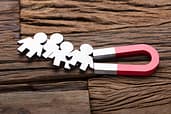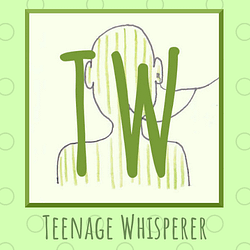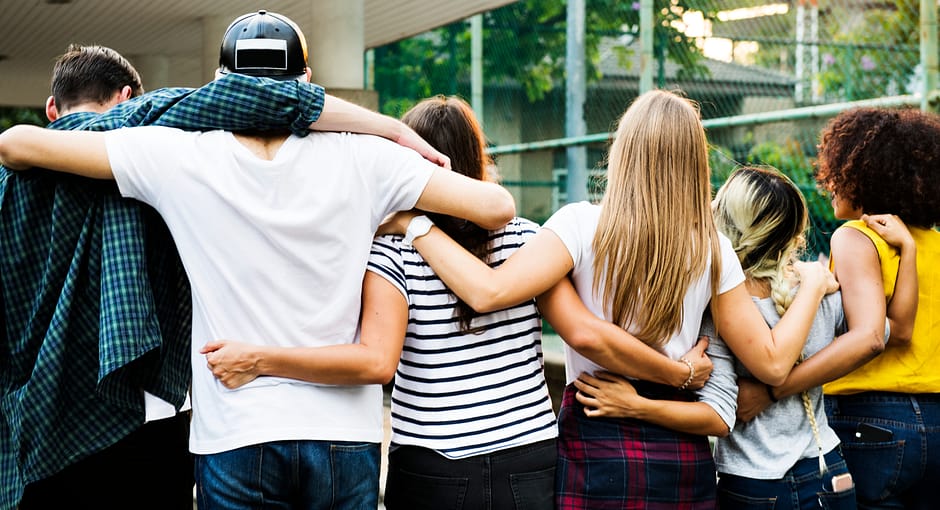They’re my friends. They’re my friends ‘cos they get me. That’s why anyone is friends with another. It’s the unspoken stuff, the connection that runs beneath the surface.
And yet you think I shouldn’t hang around with them. They’re a bad influence. They bring out the worst in me. Or you think they aren’t really my friends and are there to exploit me- to do their bidding, their dirty work, to play on my vulnerabilities all so I can feel I have friends. What the hell? I’m not going to stop being friends with them just ‘cos you say so. You must think I’m barking. You just don’t get it.
And you know what? Neither do I. They just are my mates. I didn’t plan it, it just happened. We do have good times. So to ask me to give this up with no clear reason other than a generalisation of ‘they’re a bad influence’ is not going to cut it.
You will never get me to stop being their friends until you understand why they are my friends in the first place and I understand this too.
We need to work this out together before anything else. Here are some ideas to get you started.
Familiarity magnestism
It’s no surprise that people tend to hang out with people from a similar background, with similar experiences. We feel at ease, we know how stuff rolls, we know what to expect. So we will make friends with people with a similar back story.
There is nothing wrong with this. Everyone does it. However, it begins to get complicated if I’ve had a traumatic childhood, with abuse or neglect, or where manipulation was the norm, because that is what I will  gravitate towards. It’s like a magnet gets installed in our brains and quietly pulls us towards the treatment we are used to, the interactions we are used to. Even if we hate what has happened to us before, we find ourselves drawn to the same sort of people, the same sort of dangers, the same sort of experiences.
gravitate towards. It’s like a magnet gets installed in our brains and quietly pulls us towards the treatment we are used to, the interactions we are used to. Even if we hate what has happened to us before, we find ourselves drawn to the same sort of people, the same sort of dangers, the same sort of experiences.
So there we meet. Me and my mates with similarly dysfunctional backgrounds, where ‘normal’ is far from normal, where positive role models and behaviour was in short supply. We ‘get’ each other on a subliminal level. We all have the same need to belong.
And because we have experienced poor behaviour from significant people in our lives it is likely we have not been shown what a healthy relationship looks like, what respect looks like, how to get our needs met without the use of manipulation or violence. So we don’t actually know what a proper friendship looks like. We possibly don’t know what a proper relationship looks like, in any form. All we know is what is familiar.
So our friendships often end up not being the supportive, caring relationships they should be and end up being darker. But we don’t see this as we don’t know any different, or even if we do know different, we don’t know how to do it differently, and patterns end up being repeated. We become massively vulnerable to peer pressure, because we are more likely to be manipulated and to be manipulators. This is what relationship looks like to us.
And that’s why I can move school, I can be adopted, change foster care placement, undergo any circumstance change, and still gravitate towards the same sorts of negative friendships. I still have the familiarity magnet. It’s in my head and as long as I don’t know it’s there it will still retain its magnetism.
Low self-esteem
If I feel crap about myself, my ability to make good friend choices is seriously undermined. I approach the ‘making friends’ process from a position of thinking that I am lucky if anyone lets me spend time with them. So I go into my friendships where there is not a balance of power. They have the power, I feel I have none. If I am lucky, that won’t matter and my friends will be nice people who will not exploit my vulnerability. If I am unlucky I will try and make friends with people who will sense my vulnerability and will exploit me. They’ll get me to nick the booze, get me to be rude and obnoxious to passers-by or teachers for their own entertainment. And it will all be made possible by the fact that I feel lucky to have friends at all, so I’ll do anything to keep them.
And the daft thing is that I may actually want to be friends with the people who are most likely to exploit me. 
Initially I will reluctantly do as they ask. I will cross behavioural thresholds, I will do things I wouldn’t have done on my own. But as I engage in these behaviours more and more, it kinda becomes normal. And before I know it, I am truly one of them.
But I have not fundamentally changed my view of myself. I still feel like a loser,and probably feel even more of a loser now I’ve probably thrown some bad behaviour into the mix which deep deep down I know isn’t helping and I feel deep shame about it.
The cycle of friendship fear
And here is the thing. Although I think the other guys are tougher than me, harder than me, that I am lucky they want to have anything to do with me, that they are sorted, together, the reality is that they probably feel exactly the same way as me. They’re doing stuff motivated by their fear of how they look to their mates. In fact, they are probably worried about what I think of them just as much as I am worried about what they think of me. We are all stuck in this low self-esteem cycle of fear of one another which causes us all to do things we wouldn’t do if we were on our own.
And there is a jostling for position within the group, where the balance of power is constantly shifting. Individuals or sub-groups will form trying to look tougher than the others, where a perceived vulnerability of any 
High stimulation
But it’s not all about power plays, about exploitation. We can have a blast, we can have some real fun.
But this can also have its darker side. If I have a background of being constantly in a state of high-alert because I am expecting some threat of violence from someone at home at any moment, of witnessing others being 
And so here we can potentially get the triple-whammy. I’m drawn to those with familiar experiences and backgrounds precisely because there is an unwritten implicit understanding of what life is like between us (familiarity magnetism). We have low self-esteem so we are less likely to stand up for ourselves for fear that our vulnerability, our feeling of utter crappiness is exposed as weakness and we get eaten alive. And because our collective experience of high stimulation borne of trauma, abuse, and a general high emotional volume, we tend to go for the more high octane activities that can involve misbehaving and being the class clowns, all the way up to illegal activity.
Starting the conversation
So these are some of the main reasons why I may have chosen the friends I’ve chosen. Or maybe it would be more accurate to say that that is how my life experience and circumstance has led me to come across these friends.
Now these are threads that run deep. You are not going to get me to give up my friends just by telling me to stop seeing them or to make some new ones. They meet some deep needs for me- familiarity, security and protection from vulnerability (at least as I perceive it) and excitement and fun. Even if I did go off and make some new friends, chances are I will make all the same ‘choices’.
So like I said at the beginning, if you want me to change the way I make my friends, you need to explore with me how and why I make the choices I do. Without insight into what I do by default, I won’t see why it makes any sense of going to the effort of doing it differently.
Before you even start you need to make sure you come at this with the right tone. Make sure you are asking me what I think and feel and are not lecturing, or passing judgment. My friends meet my need to belong and even if you really don’t like them, you have to respect what needs they meet for me. If you dis my friends, I will dis anything you have to say, period. You have to lead me to the place where I will reflect on my experiences, my choices and my friendships, to get me to the place where I might decide to make different choices. Tell me that my friends are all bad, all you will succeed in doing is getting me to run away from you and closer to them.
Discussion points:
What does friendship look like?
While we might think these people around us are ‘friends’, our definition of what a friend is may be very different from yours. So you need to discuss with me what I think a healthy relationship is, what a friendship is. Share your definitions too and discuss. Discuss how you learnt what a healthy relationship is, from good experiences and bad. And then we can discuss the familiarity magnet that we all have, and what mine might look like. By having this discussion we begin to demagnetise it, as awareness of patterns in behaviour and choices emerge.
What does a good relationship and friendship look like?
What does a bad one look like?
What is familiar to you?
How did people use to treat each other/you when you were in your last placement/school/home etc?
How do you think that affects your relationships/friendships now?
How I feel about myself affects my choices
Discussing self-esteem is always a tricky one. Often directly talking about it doesn’t really help all that much- it just draws attention to the fact that I feel quite crappy about myself, which makes me feel more crappy about myself, which is the exact opposite of what you are trying to achieve (see Release me from my internal prison, combat low self-esteem to find out more about this).
Often boosting self-esteem is more about ‘doing’ than ‘talking’. It’s about noticing and gently praising me for the things I get right, for providing me with opportunities to take responsibility for something, to be praised and to feel valued. It’s about getting me to look outward rather than inward, by helping me to contribute, by helping out, volunteering, to have a sense of purpose in relation to other people. Once I am more aware of how I can help others and my value there, I have less time to worry about how I look to other people.
And in the process it is likely I will make some new friends, friends who are also looking outward rather than constantly trying to protect their tough image and hide their vulnerability like my usual friends.
Finding friendships based on something other than our common bad past experiences can be hugely transformative too. Getting involved in a sports team, or in an activity I enjoy (or am likely to enjoy) with other people means there is the opportunity to make friends based on something new. This way I will discover what good friendship is, good team-playing is, how to play fair, how to respect others and how to be respected.
But even if we start doing these things to make me feel better about myself, you may find I still also need to think it all through with you and how I feel about myself impacts on my friendship choices. Questions like these may get me thinking and follow on well from the previous ones, and all without having to expressly have a conversation about my ‘self-esteem’.
Why do you think you choose the friends you do?
Do you think you make a choice, or does it just kind of happen?
Do you think everyone is equal in your group?
Do you think some are more powerful than others?
Where do you think you are in the group- the boss, the dogs-body, somewhere in between?
(This could be a paper-based activity where you have body cutouts, they label them with their friends’ names and you position them along a continuum from boss to dogs-body. You can then discuss various scenarios from just mucking about with them playing footie, to more serious peer pressure situations like stealing from a shop and how positions might change).
Why do you feel like you are in that position?
Do you think this is right?
How do you think your friends should make you feel?
Should your friends make you feel unsafe and scared?
Do you think how you feel about yourself influences how you behave in the group?
If you were more confident do you think you would be friends with them?
Do you think your friends really are feeling confident or do you think it is just a show?
People often start to feel more confident by doing new things and seeing that they can. Can you think of anything that you might like to try to make you feel more confident and less uncertain?
Again, discuss scenarios from your own life and how you dealt with these situations. It humanises you and make us feel less like freaks.
The need for speed
Where you suspect I hang around with the friends I do due to a need for high excitement, ask me about it:
Do you hang around with ……. because they are exciting?
Do you find life is boring without them?
Do you think you could get the same sort of excitement from somewhere else like rock-climbing or go-karting without all the downsides (like getting in trouble with the police, teachers etc).
And before I sign out, I’m going to say one thing again because it is SO important. In all of these discussions you can’t dis my friends, you just have to help me to see things in a more rounded way, with some new insight and perspectives. Approach the whole discussion with curiosity rather than judgement and you are more likely to lead me to the place where I realise that my friends may not be the best thing for me after all.
It’s about respecting and understanding where I am coming from and respecting me as an individual to make the right choices when given the right information and the right insight from a place of loving care. In doing it this way, you are role-modelling for me what a good relationship looks like- where manipulation is not the method to get what we want, where there is an equalisation of power, where mutual respect is key and we can appreciate the value of each other’s opinions and views.




